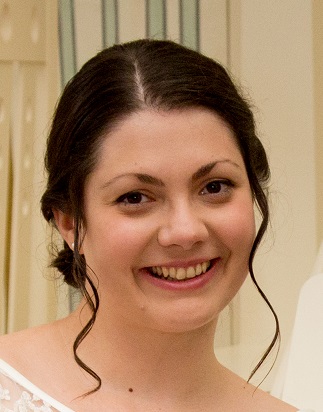
Ourania Varsou is Lecturer in Anatomy at the School of Medicine, Dentistry and Nursing, University of Glasgow.
Her forthcoming book Teaching, Research, Innovation and Public Engagement is a unique compendium of professional and practical knowledge on new paradigms and approaches in Teaching, Research, Innovation and Public Engagement that is currently missing from the Higher Education market.
How did you happen to approach narrative medicine?
Before answering this question, I think it might be useful to briefly discuss my academic background and current professional context as this will provide a helpful setting to this answer. Initially I trained and worked as a medical doctor, in the UK, which was my first contact with narrative medicine. However, I have to be honest and say that at that point, I was a novice and my understanding of what narrative medicine is and what it entails was at its infancy.
Going back to my academic background, alongside my MBChB, I also hold a BSc (Hons), a PgCert in Mentoring and Coaching with Merit, and a PhD in Neuroscience. Since 2016, I have been working full-time as an academic in Higher Education and specifically as a Lecturer in Anatomy with a focus on Scholarship of Teaching and Learning (SoTL). This means that I am predominantly involved with developing and delivering teaching that varies from anatomical sciences to scientific skills, such as statistics for biosciences and scientific writing.
The most relevant part to this interview is that I also develop and deliver bespoke face-to-face and online teaching on health/medical humanities in my current institution and, as an invited external faculty member, to several different international institutions. Examples of such teaching endeavours have included dental humanities, Equality, Diversity and Inclusion (EDI) in the context of human anatomical sciences, ethics in clinical and research practice, the evolution of medical illustration in the context of modern research and teaching, and reflective analysis of poetry with a focus on biomedical sciences and/or healthcare-related topics. It is through these experiences, and the interaction with like-minded colleagues with whom I have co-developed and co-taught such subjects and the learners, that have allowed me to develop a better insight into what narrative medicine is and have solidified my understand of it.
Coming now to answering this question, from a personal point of view, I approach narrative medicine as an interdisciplinary field that brings together the arts and humanities with anatomical sciences and healthcare. In terms of the latter, this includes medicine and dentistry for me as I am involved with teaching students from these disciplines. My goal through pedagogical initiatives, in narrative medicine, is to explore with learners different ways of developing a better insight into challenging topics and/or the patient experience.
As I am predominantly involved with teaching, it is also the collaborative and collegiate way of interacting with colleagues in terms of developing and delivering such teaching and the post-teaching reflective process. From a personal point of view, this is perhaps one of the most important aspects of how I approach narrative medicine within my professional practice.
Is there an official definition of narrative medicine where you work? If so, what is it?
Even though I develop and deliver relevant teaching for different international institutions, and I also collaborative with different organisations such as EUNAMES (https://www.medicinanarrativa.eu/eunames) and the Doctor as a Humanist (https://doctorasahumanist.weebly.com), I have not specifically looked for a definition of narrative medicine within these.
To be honest, there has not been a need to do so. I think this may be because I have found that the principles of narrative medicine are similar in different settings, and indirectly become evident when discussing with like-minded colleagues from these institutions and organisations, without having to specifically look for a definition. These principles relate to interdisciplinarity, collegiality, reflection, health/medical humanism, patient-centre approaches, etc.
I would also like to highlight here that I am discussing narrative medicine from the perspective of a Higher Education academic involved with the development and delivery of biomedical teaching, focusing on health/medical humanities, and not from that of a front facing healthcare professional which may be somewhat different due to a different professional context and experiences.
What is narrative medicine for you?
For me narrative medicine is about interdisciplinarity, collegiality, and reflection within a pedagogical framework with the aim of establishing an active dialogue with learners for the promotion of health/medical humanism and a patient-centred approach. It is a learning journey, taken with our students, with the goal of developing a better insight into the patient/carer experience and/or challenging topics.
For me, creativity and open-mindedness are also very important when it comes to narrative medicine. Sometimes, it is not a bad idea to question/challenge the pedagogical status quo (i.e., innovative or alternative approaches used for teaching within Higher Education that are different to what has been so far).
My new edited book by Springer, “Teaching, Research, Innovation and Public Engagement”, provides exactly this; a collection of professional and practical knowledge on new paradigms and approaches in Scholarship of Teaching and Learning, Research and Innovation, and Public Engagement. This volume will be out in March 2023 and I highly recommend all the books from the New Paradigms in Healthcare series for any colleague who is interested in narrative medicine and health/medical humanities.
What is the history of narrative medicine and the Medical Humanities?
I have to be honest and say that I have not specifically looked into the history of narrative medicine and health/medical humanities and I am definitely not an expert on this front. But, from personal professional experiences, I feel these are closely interlinked as they share similar ideals and principles, with a focus on health/medical humanism, while marring together the arts and humanities with biomedical sciences and healthcare.
